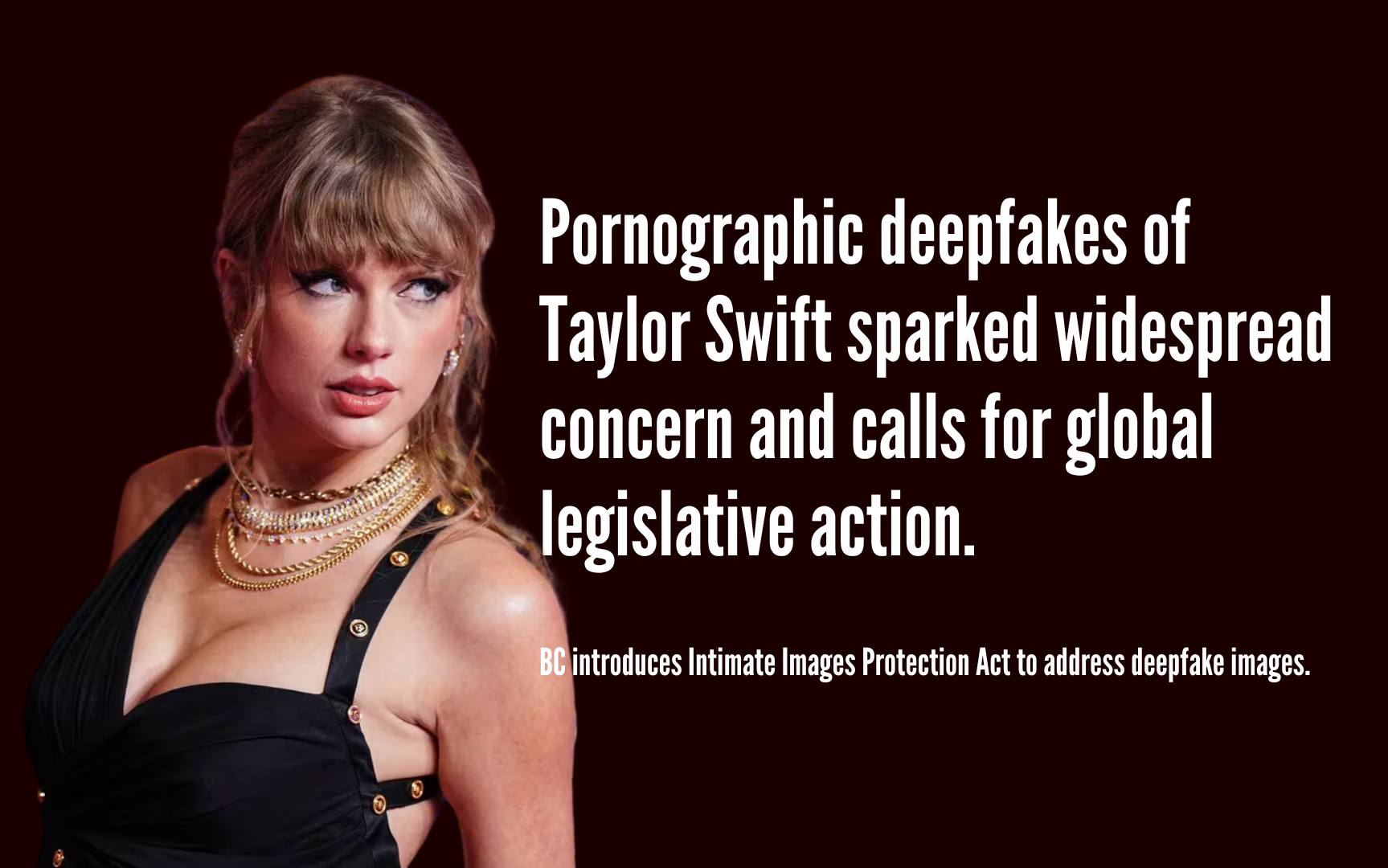
The recent spread of explicit AI-generated images depicting Taylor Swift has sparked widespread concern and calls for legislative action against deepfake images and non-consensual sharing of images.
Today marks a significant milestone for sextortion legislation in British Columbia with the implementation of the new Intimate Images Protection Act. This legislation includes references to deepfake images and grants prosecutors more power to convict individuals who share intimate images without consent. Now the next crucial step is to advocate for legislation that addresses the creators of these horrible, non-consensual images and ensures accountability for social media companies.
The case with Swift underscores the urgent need for comprehensive legislation to combat deepfakes on social media. These horrific images, viewed by millions before removal, not only violated Swift’s privacy but also amplified the debate around tech and social media’s role in facilitating such harmful content.
AI’s availability has made production of deepfake creations more accessible and widespread. It poses a concern for survivors of sexual abuse. Perpetrators can still wield power by threatening to distribute such fabricated intimate material. This coercive tactic perpetuates trauma and reinforces the cycle of abuse, compelling survivors to remain in or return to harmful situations out of fear of exposure and humiliation.
At BWSS, while we appreciate the public illumination of concerning issues, we condemn what happened to Swift. We advocate for more robust measures to address the creators behind such incidents. Swift may be considering legal action against the website that created the explicit and fabricated images of her. While Swift has resources to do so, what about women without access to such support? Many victims are overlooked, and the creators of their intimate deepfake images often go unpunished. Posing a threat to women everywhere.
Recent Canadian deepfake cases highlights the inadequacies of existing laws. So we commend the BC government for taking a proactive approach in addressing these issues through the Intimate Images Protection Act. We are dedicated to collaborating with the government to push for legislation that keeps up with the fast-paced concerns faced by women in the digital era.
Swift’s ordeal serves as a harsh reminder of the urgent need for coordinated action, both domestically and globally, to confront the proliferation of deepfake tech. It also emphasizes the need for addressing the existing gap in the legal framework for prosecuting creators and ensuring accountability for social media companies.
It is only through collaborative efforts, involving legislative reforms, technological advancements, and comprehensive public awareness campaigns, that we can effectively address the risks posed by AI tech and uphold the fundamental principles of privacy and consent in the digital era.
Share this blog on social media (see post on @endingviolence) and let’s bring more awareness to this social issue.




